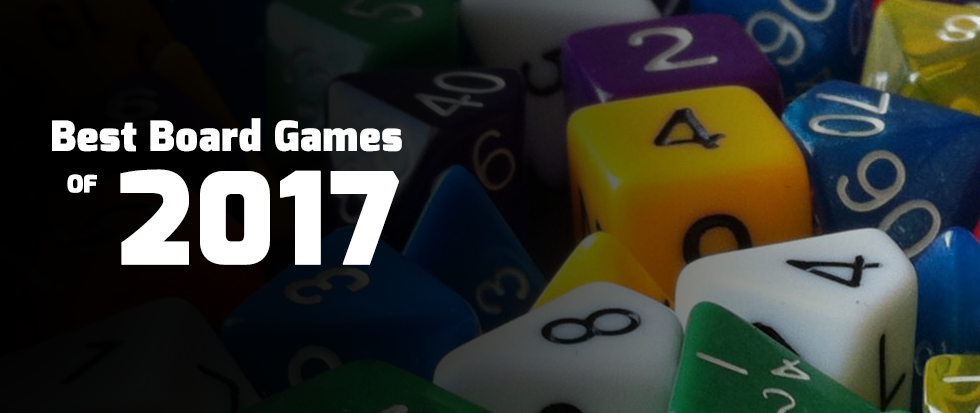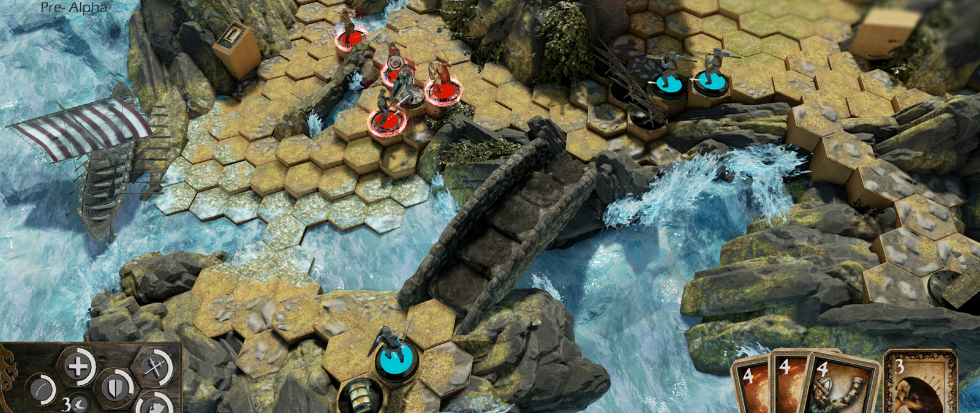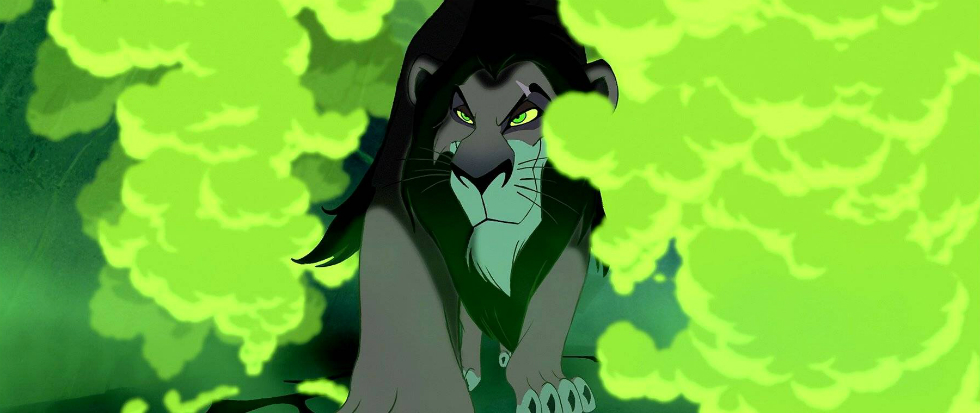
Best Board Games We Played in 2017
2017 was a big year for board games, with a range of big campaign board games intermingling with inventive smaller releases. But here at Unwinnable, we’re not content to limit ourselves to the latest board game releases. After all, board games are evergreen things, and one of the big joys of board games is in the discovering of cool games that are new to us. Here’s some of the games we’ve enjoyed discovering in 2017.

Kingdom Death: Monster
Kingdom Death: Monster took over our playgroup’s lives despite itself. Despite the rules being so full of holes and corner cases that I’m pretty sure we accidentally cheated for a third of our playtime. Despite a gameplay loop that should, by all rights, have bored us to tears thanks to the scant few monsters that come in the core box. Despite the sheer frustration inherent in having to restart our 20+ hour campaign multiple times due to total party wipes. And yet it’s the game we’ve played the most by far this year. Kingdom Death is a game that asks you to take down a lion with nothing but a cloth on your waist and a stone shard you ripped out of the ground. It’s a civilization building game that zooms in on an individual settlement, where you’re all just trying to survive and, dare you hope, thrive as best as you can in a world that wants you all dead. It’s a game that expects you to kill the same beasts over and over as you hunt for food and progressively better armaments – but also greater knowledge of the monsters’ behaviors that you can arm yourself with to hunt progressively more difficult quarry. The gameplay loop that alternates between tense, difficult battles with monsters and tough long-term settlement planning keeps you incredibly invested. The biggest compliment I can pay to Kingdom Death: Monster is that it makes you feel like you’re building something from almost nothing, makes you earn it, and makes you love earning it.
(Jeremy Signor)

The Quest for El Dorado
The Quest for El Dorado doesn’t do much new in terms of individual game mechanics, but the combination of deckbuilding and racing is something surprising and new. Each half of El Dorado—the deckbuilding and character movement—has been stripped of frivolous bells and whistles and are presented here in streamlined and easy-to-learn formats. The sum of these two halves is a fast playing family game that will continue to find your table time and time again. For ease and replayability alone, The Quest for El Dorado is my game of the year.
(Sam Desatoff)

Machi Koro
The die-hard members of Unwinnable’s New Jersey board game club chapter (Stu Horvath, Ken Lucas and Ed Coleman) hate Machi Koro. They spent countless nights creeping slowly into the early morning for “just one more round” of what is possibly the most frustrating, captivating and monstrous board game ever created. You build a town with cards. You buy those cards, each a property with a specific mechanic, from an ever-changing market. More often than not, the property you want doesn’t appear on the market, or is bought by your opponent right before your turn (“I’m not bitter!” all three say in unison). Dice rolls, which function like craps and scratch a gambling itch for the majority of the group, generate income for players and cause effects which range from good to bad to table-flipping. The first person to have enough money to build all their landmarks wins. Expansions add more types of properties to inspire the hatred of your friends. Lest this be seen as a condemnation, I should also note that the die-hard members of Unwinnable’s New Jersey board game club chapter also love Machi Koro (so long as they are winning).
(Stu Horvath)

Alchemists
A heady concoction of science, magic and worker-placement, Alchemists‘ core potion-mixing puzzle would be a tricky brain-teaser if you had the luxury of studying it full-time. But no, there are ingredients to be harvested, bold adventurers offering lucrative payouts for specific potions, and impending academic conferences ready to punish your lack of concrete theories on the precise chemical structure of newt extract. There’s never enough time, money or disposable students to test every possibility, and progress is a heady mix of logic and blind intuition. Alchemists forges that pressure into desperate gambles to prop up your funding, to demonstrate your knowledge to a curious public, to disprove competing hypotheses while praying that your peers rushed to publish their theories with as little insight as you did your own. It’s an elegant design which avoids anticlimax by keeping the answers under wraps until the last possible moment, scientific method scorned as theories are proven and debunked amid roars of derision across the table. Publish and be damned!
(Rob Haines)

Centipede
There’s no need for a board game version of Centipede, the Atari arcade and home classic. One wouldn’t be faulted for considering the existence of this game as nothing less than a cross-media tie-in, videogame turned comic turned board game in an effort to maximize profitability. But IDW did the smart thing and turned to one of my favorite small game developers, Anthony Amato and Nicole Kline of Cardboard Fortress out in Philadelphia. I’m an on-the-record fan of their work, and was delighted to see that they’d put together Centipede for IDW and did so without getting too tied down to the history of the franchise. Left to their own devices Cardboard Fortress burrowed out a simple, puzzling, asymmetrical two-or-four person face-off that really taps into the speed of the videogame. Both players are given some randomly generated choices to make, whether it’s cards shuffled and drawn or rolled dice, but enough maneuverability around those bestowed options to to make sure both players feel some agency in their own fates. There’s a clear respect for the aesthetics of the source material, requiring the same amount of forethought and vision for a few moves ahead while allowing the autonomy of special abilities. Each playthrough of Centipede is downright dirty and playfully brutal, exactly what I look for in the kind of board games I use to get skittish players hooked for life.
(Levi Rubeck)




